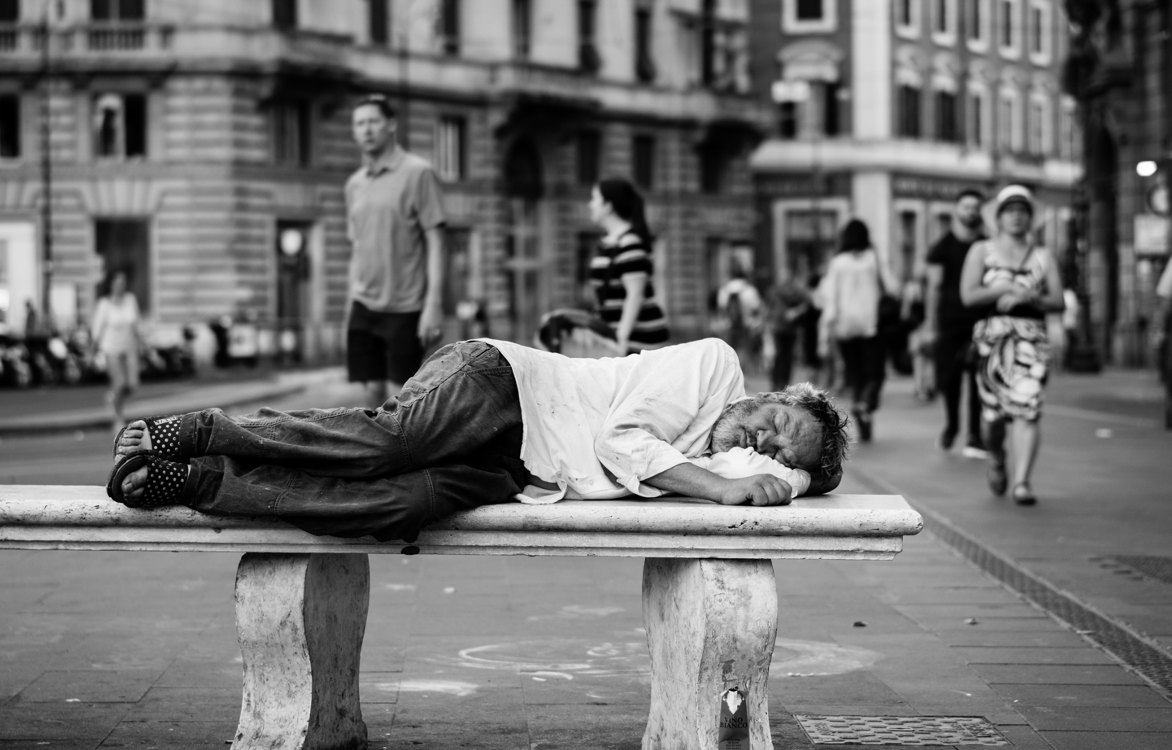Living in precariousness is not and has never been a primary choice for anyone. Unfortunately, we do not choose where we are born, i.e. neither our country nor our family. 10% of the world’s population, or more than 700 million people, struggle every day to meet their basic needs such as access to health care, education, water and sanitation among other needs. The majority of people living below the poverty line ($1.90 per day) are in South Asia and sub-Saharan Africa. Still, the developed countries (the richest) are not spared, more than 30 million children grow up in poverty.
These growing inequalities between rich and poor have drastic effects on our society. It undermines global economic growth, weakens social cohesion, aggravates political and social tensions, and fuels instability and conflict. Therefore, eradicating poverty in all its forms everywhere in the world concerns us all and is the number one UN goal to be achieved by 2030.
How do we keep our heads above water?
Not being able to choose what to eat, not being able to face unexpected expenses, not having an internet connection at home, not being able to meet friends or family around a meal, not being able to participate regularly in a leisure activity,… are material and social deprivations that some people have to do in order to keep their head above water. This means that they cannot afford a standard standard of living. The European indicator of poverty and social exclusion is based on income, severe material deprivation and very low labor intensity households. Developing countries face more challenges regarding basic needs and rights that are not yet as well established as in Europe and other developed countries. For this reason, it is important to include the multidimensionality of poverty when measuring it and not just rely on a partial picture such as income level. The Multidimensional Poverty Index (MPI) is an index based on infant mortality, nutrition, years of schooling, school leaving, electricity, drinking water, sanitation, housing floor, fuel for cooking and property, these 10 indicators count the deprivations that affect households in the area of health, schooling and living standards.
In other words, insecurity is the absence of some of the above-mentioned securities that do not allow individuals and families to assume certain basic responsibilities and enjoy their fundamental rights. This constant insecurity has serious and more or less definitive consequences.
Does living in precariousness at a young age follow us all our lives?
The EU-SILC survey, carried out by the Belgian statistical office, found that young people who lived in precarious situations during their teenage years have more difficulty getting out of these precarious financial conditions than their compatriots living in a household in very good financial health. Moreover, the education obtained, the parents’ position (level of education) in society as well as their nationality significantly influence their future life. This intergenerational transmission of precariousness must be broken absolutely and it is only by having public, private and citizen help to take their future in hand that these young people will succeed.
Together, let’s eliminate precarity
Like Semlex for Education, 4Wingsfoundation is active in Belgium in the education sector, and more specifically in tech-education and contributes to the inclusion, insertion and employment of those who are deprived. Besides that, they also give wings to social entrepreneurs to fight against precariousness in the housing and preventive health sectors.
Also active in tech education, Learning Lions aims to equip young adults in poor rural areas of East Africa with computer and media skills. This gives them a life of opportunity and inspires them to become entrepreneurs.
In addition, there are groups of people living in extremely precarious situations, such as homeless people, illegal residents, collective households and others, who are not registered in the national register of natural persons. Not having a roof over their heads, they gambol and survive with the minimum viable. In order to alleviate this vicious circle of having nothing, there are some active associations like
Mademi, providing temporary shelter for people in great difficulty: rough sleepers, refugees and isolated people.
Huneeds, supported by Semlex for education, providing a concrete solution to vulnerable people by focusing on a better knowledge and understanding of themselves through coaching, personal development and self understanding.
Duopo, centralizing the management of hot drinks for people in precarious situations, is an intermediary that wants to create solidarity between the citizens paying a supplement for their drink, the establishments adhering to the project and the associations distributing the drinks.
Feedtruck Belgium, preparing meals with unsold food for people in precarious situations.
The Order of Malta‘s “La Fontaine” shelters, allowing the most excluded people to be welcomed and listened to, to have personal hygiene and basic nursing care.
among many others.
Not having a social security identification number (NISS), it is impossible to benefit from social security when you really need it due to life’s events… such as the loss of your job, the joy of welcoming a child or undergoing an operation due to an accident… life is meant to be lived 100% but if the resources are not there, it becomes complicated.
A duty of the State
It is the duty of modern states to know, count, plan and secure the basic needs of all their citizens. The same goes for their data. Protecting the digital identity of each and every one of us is indispensable in our digital age. Semlex, active in more than 30 countries, contributes to this by manufacturing and supervising the operational management of biometric identification systems from A to Z in order to counter fraud.


